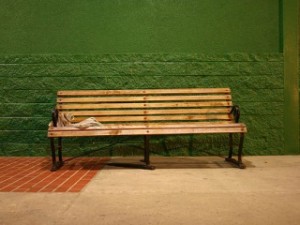By December of this year, California will have to deal with the effects of a 10,000 man reduction in its prison population — the first of three reductions.
California currently holds a little over 140,000 inmates in facilities designed for around 80,000. However, the U.S. Supreme Court, in a 5-4 decision early this year, upheld a lower court decision to force California to reduce its prison population to 137.5% of the “maximum” capacity of 80,000 inmates, allowing for the continued incarceration of about 110,000 prisoners. Justice Samuel Alito put things in perspective when he wrote in his dissent that “the three-judge court ordered the premature release of approximately 46,000 criminals — the equivalent of three Army divisions.”
Justice Anthony Kennedy, writing for the majority in the case Brown v. Plata, agreed that the District Courts in Plata v. Brown and Coleman v. Brown were correct in ordering the reduction of tens of thousands of prisoners on the basis that “inadequate” healthcare due to overcrowding violated their Eighth Amendment rights. He then suggested that California use “good-time credits and diversion of low-risk offenders … to community-based programs” in order to comply with the court’s order.
There has also been talk of making non-violent felonies into misdemeanors. In other words, because so many people commit crimes, we have to let more people off the hook and hand out less punishment. That is a philosophical problem.
Another more practical problem with this plan is that California is not prepared for this reduction logistically. In 2009, after having to close a budget gap, Alameda County cut or laid off 100 employees in its sheriff’s office, making it harder to track criminals out on parole. Los Angeles County does not have the money to maintain jails for criminals diverted there from state penitentiaries. Law enforcement in California is already overworked as it is, and the Supreme Court plans on running it into the ground.
There are multiple issues with the Court’s decision in Brown v. Plata. The first and most glaring problem is that the Court ruled that the overcrowding and lack of decent medical care violated the prisoners’ Eighth Amendment rights. In Nepal and Brazil, whole families of miners live in one room houses. Even in Kentucky, families of five live in mobile homes designed to house one or two people. In addition to living in such cramped quarters, these law abiding citizens do not receive any healthcare at all, let alone “insufficient” health care. Not everything in life is perfect — just look at the education system in the United States.
The Supreme Court cannot act as legislators in an attempt to better the conditions in public schools, though. Justice Alito was correct when he wrote, “undesirable prison conditions that do not violate the Constitution are beyond the federal courts’ reach,” which means that the court erred in its decision.
The second error in the court’s reasoning can be found in its willingness to order a complete overhaul of a system based on the complaints of a few individuals. Even if the medical care that the prisoners in Plata and Coleman received could be construed as “cruel and unusual,” that does not mean that every prisoner in California had his or her rights violated.
In addition, the evidence of poor medical care may not apply to today’s system, as Plata was filed a decade ago and Coleman two decades ago. Justice Scalia summed this up by stating, “The mere existence of the inadequate system does not subject to cruel and unusual punishment the entire prison population in need of medical care, including those who receive it.” The Court should never have found in favor of the plaintiffs in this class action lawsuit — because it is ludicrous to suggest that every prisoner faced “torture or a lingering death” as a result of the medical system.
“There comes before us a case whose proper outcome is so clearly indicated by tradition and common sense, that its decision ought to shape the law, rather than vice versa,” wrote Justice Scalia in his dissent in Brown v. Plata. Rarely has the Supreme Court issued a decision as pernicious as that in Brown v. Plata.
As a result of more Californians committing crimes, criminals will face lighter punishments than before. The public will then be exposed to more threats than before. All of this because five individuals, four of them activist judges, decided that the medical care provided to criminals was inadequate.
Ondo is a member of
the class of 2014.


